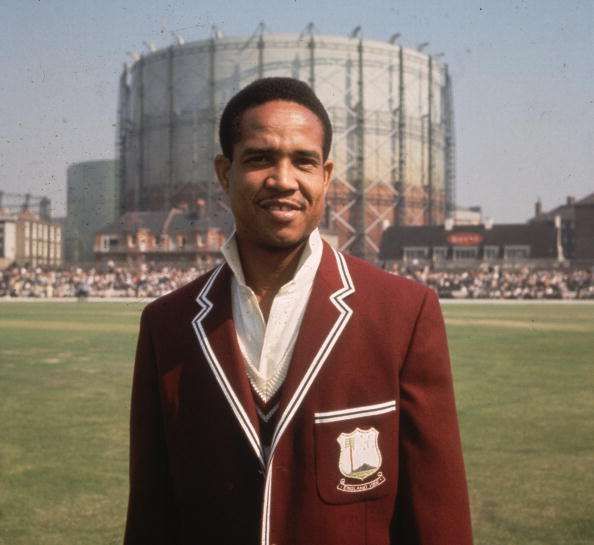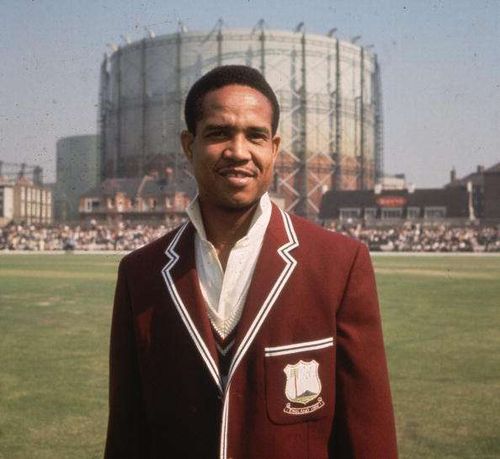
Sir Garry Sobers: The five-in-one cricketer
The word all-rounder is being used increasingly, and rather injudiciously, to put cricketers who can contribute with both bat and ball under one bracket. Sir Garry Sobers has achieved such a multitude of deeds on the field that they make him stand out as the indubitable champion of the breed.
An enterprising left-hander with both poise and power, Sobers was ruthless on the off-side, butchering even the slightest widths to the fence with surgical precision.
He could play all around the park with the same elegant roll of the wrists; his high lift of the bat was like a guillotine ready to smack the life out of the ball. Yet, it wasn’t just crude savagery, but an elegant beating that the ball took on contact with the blade. Supplementing the audacity was a style and fluency when he batted, dipped in a nonchalant assurance that reflected his personality.
If he could play the belligerent square slashes, he could also follow them up with soft dabs off his pads, or wristy flicks to the leg side. Pulling was like second nature to him, the balance would shift to the back-foot upon sensing a short length, and the arms would do the rest.
Often, statistics don’t suggest a player’s brilliance. Yet, Sobers had great numbers to back his talent, a complete set of figures to attest his reputation as the greatest all-rounder that the game has seen.
In 93 Tests, Sobers scored 8032 runs at an average of 57.78, the fourth-highest career average for a person with 5000 Test runs or more. That included 26 centuries and a high score of 365, an unbeaten knock that he compiled as a 21-year old against Pakistan on his way to a maiden Test ton.
Yet, that is only one-half of Garfield Sobers. He could bowl, and he could bowl anything and everything. He could move the cherry sweetly past the bat, enticing the batsman into a drive only to slay him with swing.
If that wasn’t enough, he could slip in his left arm spin, the exact skill for which he earned his maiden Test call-up, primarily as a bowler.
He didn’t stop there, being inventive enough to bowl chinaman on the slow and drab Indian pitches.
In all, he snared 235 Test wickets, with as many as 6 five-wicket hauls to his name.
Much like Eknath Solkar, Sobers was a freak in the leg-slip position, one of the many fielding places that he graced, with a knack to pre-empt his movements and with the same sharp eye that picked up lengths in a jiffy while batting.
Adding to this was his aggressive captaincy, leading the side in 39 Tests, and preceding Clive Lloyd as the leader of the national side. With such a complete repertoire of skills, it isn’t surprising that he was called a five-in-one cricketer.
On his way, he crumbled a number of milestones, and made some new ones. Before Yuvraj Singh, before Herschelle Gibbs, and even before Ravi Shastri, Sobers became the first player to hit six over-boundaries in one over, smacking a hapless Malcolm Nash for six maximums to break a 57-year old record for most runs off a single over.
He earned knighthood soon after his retirement from the game, and was hailed by Sir Donald Bradman as the greatest all-round cricketer he had ever seen. After a sublime 254 against Australia for the Rest of the World, the same individual had stated that it was perhaps the best innings played on Australian soil. Sobers was also named as one of the five Wisden cricketers of the previous century.
It is a pity Sobers played just a solitary ODI; he could have made the shorter version is own. Yet, it is Test cricket’s gain that his nonpareil skill was captured in whites, and whites alone.
